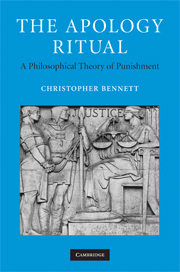Introduction
Published online by Cambridge University Press: 22 September 2009
Summary
an everyday story
After a hard day at the office Bryson gives in to the cajoling of a couple of his colleagues and decides to join them for a drink. Stretching out his legs in the pub he savours the atmosphere, the chat and the sheer leisure of having nothing to do until the next morning, while the alcohol courses into his blood and makes the world appear that little bit rosier. The only problem is, he drives to work, and will need to drive home again. This fact hovers constantly more or less into focus in his mind, and he makes it clear to his mates that he will not be staying with them for long. Nevertheless, as he is about to get up to leave, having had as much to drink as he ought to in the situation, they persuade him to stay for one more. It is not that Bryson is naturally reckless or that he does not care about the danger he might be to others when he is under the influence: this fact has been more or less present to his mind all along. It is just that, after he has had a couple of drinks, this aspect of the situation slips out of his awareness under pressure from his friends. In the delicious relaxation of the moment he assures himself that he is not really going to be a danger to anyone.
Eventually Bryson does get to his car. He is nowhere near legless, but he should not be driving.
- Type
- Chapter
- Information
- The Apology RitualA Philosophical Theory of Punishment, pp. 1 - 10Publisher: Cambridge University PressPrint publication year: 2008



